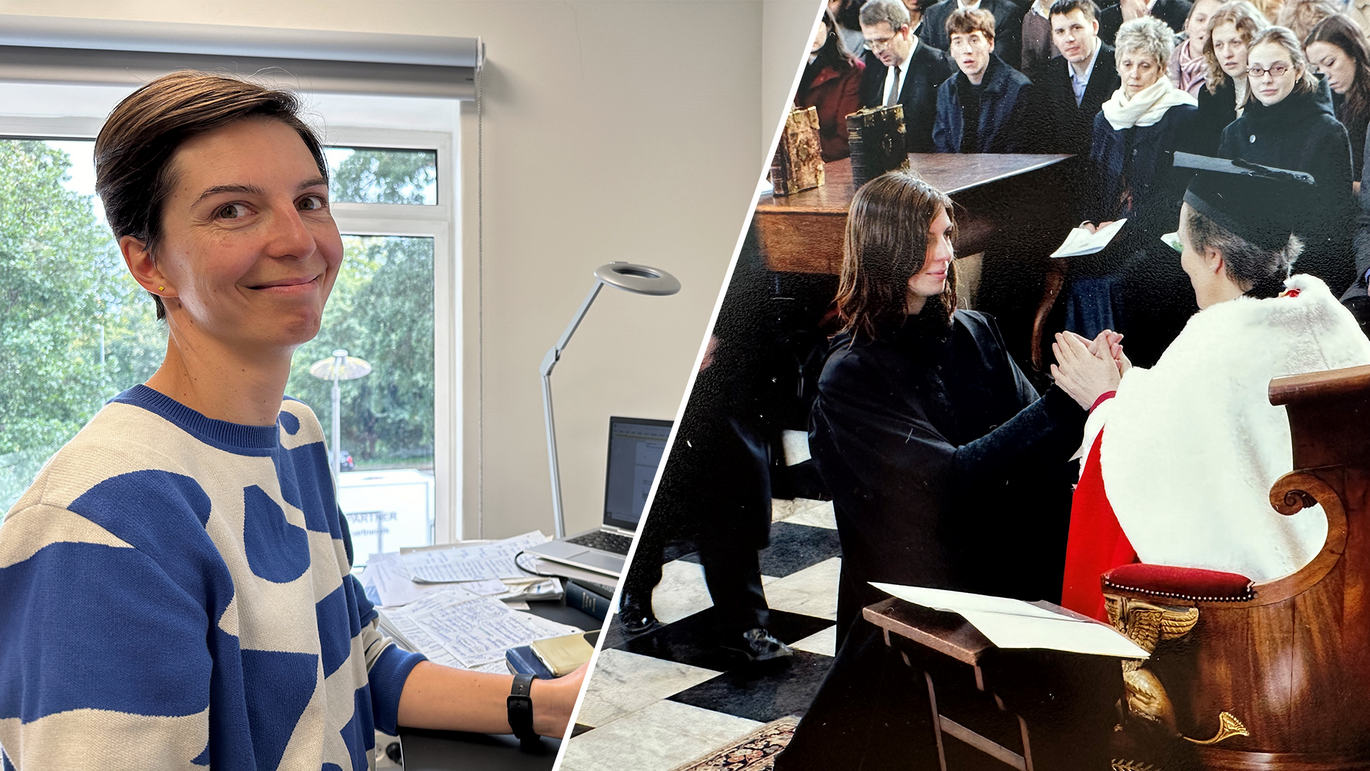Christina C. Dahm: "I still get goosebumps when I think about the conversation with my supervisor"
Postdoc or professor. Permanent or loosely affiliated. Female, male or something in between. The academic way of life is full of gender equality pitfalls and career dead ends. Here, Associate Professor at the Department of Public Health Christina C. Dahm talks about navigating working life inside the yellow brick walls.

ABOUT
Name: Christina C. Dahm
Title and affiliation: Associate Professor at the Department of Public Health
Field of research: Epidemiology
Age: 44 years
Place of residence: The Aarhus suburb of Højbjerg
Family: Married to Felix Riede, professor of archaeology at Aarhus University, they have two children.
I think my parents' nudging family holiday to Oxford and Cambridge with me as a teenager worked. I never really had any doubts about going to university, and I did my entire university education - from bachelor to PhD - in England. My parents are also academics and I was a science enthusiast myself and always read a lot of books as a child. I was sure that I was going to study something with stars, but it ended up being epidemiology.
I still get goosebumps when I think about the conversation with my supervisor Professor Sheila Bingham. I was at a crossroad and wasn't quite sure what to do after my PhD in molecular biology at the University of Cambridge. Specifically, she suggested I do a master's degree in epidemiology in London and then return to Cambridge so we could write a grant application for a joint research project together. That happened too. But overall, I felt that she saw potential in me and she took the time to tell me and advise me in a very nice way. It was generous of her and a seminal experience for me.
I also try to be generous myself. Especially towards early-career researchers. I might be a little too friendly at times - people must have taken advantage of me over the years, but I'm probably too naive to realise that. There's no need for sharp elbows, but when I'm tired and stressed, I can be small-minded and I hate it.
"There's nothing malignant in your moles," said the middle-aged male peer as he ran his hand up my back and put his arm around my shoulder. I knew that very well. I was a postdoc at a cancer conference in the UK, where I was nominated for an award for my poster presentation. For dinner, I wore a dress that was slightly low-cut in the back and therefore made my moles visible. I don't know what he was thinking in the situation, but for me it was inappropriate and uncomfortable.
I've been privileged to be tall, slim and white. It's just an advantage, also in the academic world. I kind of automatically start in plus. I'm very conscious of that. However, this is not the case for grants, which are still in the men's favour. It's systemic discrimination, and it's really problematic because it affects our career paths. I don't think much about gender equality in my everyday working life, but I also work at a department with a lot of women, also in top positions.
However, I have been part of professional forums that were all-male clubs. These were men with seniority who had an understanding and extremely chauvinistic tone and spread a locker room atmosphere that you as a female researcher were not automatically a part of.
Okay, a downgrading, I thought to myself when I was invited to the advisory board meeting at the department. It turned out that my role was actually to support the process by drawing the others' brainstorm and not participate in it myself. I love to draw and have been on a graphic facilitation course, so in a way it made sense. It was hard to say no, and despite having doubts about the job, it turned out to be a good experience. I've done it two or three times since.
I've made it! That's how I felt when I got a permanent associate professorship at the Department of Public Health. That was enough. You can't underestimate how stressful and uncertain it is to be a temporary employee. "Publish or perish" is something I know very well, and it's really a small eye of a needle to get a permanent position at a university. I think it's only gotten harder for junior researchers today. But now my goal has shifted and I dream of becoming a professor.
I think it's better to say yes to research assignments rather than teaching assignments if you want to advance. I was asked if I wanted to be director of studies or co-chair of the scholarship committee. Both are labour-intensive, but which is more insightful and which best complements my CV? I ended up saying yes to the last one.
I usually say yes if someone asks if I want to be an assessor on a PhD. It's an honour to be asked and it's fun to read what others are doing. I also attach importance to supervision. I want to help open new doors of knowledge for early-career researchers, in the same way that my own supervisor sent me in the direction of epidemiology almost 20 years ago.
ABOUT THE SERIES
The inspiration for this series of articles comes from the Committee for Gender Equity at Health, and is intended to spotlight the career opportunities and challenges junior researchers in particular face in their day-to-day working lives at the faculty.
Each article gives you a glimpse of what working at Health is like for researchers at different career stages and across all of our departments.
In 2023, we focused on work-life balance, and since 2024, we’ve been focusing on the theme of diversity, gender equity and inclusion.
There’s a link to all of the previous articles in the series under this article.